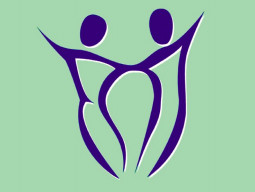
KARACHI: Old customs and traditions, no matter how valued they may be, must be thrown away if they are harmful for the individual and for society as a whole, said Rahnuma Family Planning Association of Pakistan (FPAP) director advocacy Nabeela Malick.
She was referring to customs such as early child marriages and stressed upon the need to focus on female health. “We need to concentrate on the health of our girls,” she said.

During a seminar on ‘Understanding the Adolescent Girls and Young Mothers Sexual and Reproductive Health Issues’ at Marriott hotel on Thursday, Malick said that there is no programme or policy for adolescent girls in Pakistan. “There is nothing for young mothers as well,” she added. “Public sector hospitals should also have post-abortion care units but nothing of that sort can be found in the country.”
The Research and Advocacy Fund project manager Shahnaz Fateh said that maternal mortality rate has not decreased despite the fact that the government and other agencies have been working on it for several years.
“There is no tradition to discuss reproductive health issues with girls,” said Fateh, adding that educational institutions should provide reproductive health education to female students.
The participants of the event commended the members of the Sindh Assembly for passing the Sindh Child Marriage Restraint Act, 2013 and asked other provinces to follow in their footsteps.
Not a local problem
Media persons from all over Pakistan participated in the seminar and highlighted the issues that women face in different parts of the country.
“The issue of early child marriages doesn’t only exist in Pakistan but also in several other countries,” said Lahore-based journalist and writer Wasif Naghi.
Sharing international data, he said that about 24 per cent of marriages under 18 years are being held in Pakistan. “However, Sindh makes up 72 per cent of the country’s underage marriages,” he added. “Religious leaders, lawmakers and the media should all play active roles in fixing this issue.”
Quetta-based journalist, Watan Yar Khilji said that a number of healthcare facilities are occupied by influential persons. “The situation in my province is very critical. Our women need attention,” he said.
“We live in a male dominated society and we can’t address the issues that women face until and unless we convince the influential men who control our society,” said Quetta-based female radio journalist, Mehreen Gul.
Published in The Express Tribune, July 19th, 2014.



































































COMMENTS
Comments are moderated and generally will be posted if they are on-topic and not abusive.
For more information, please see our Comments FAQ